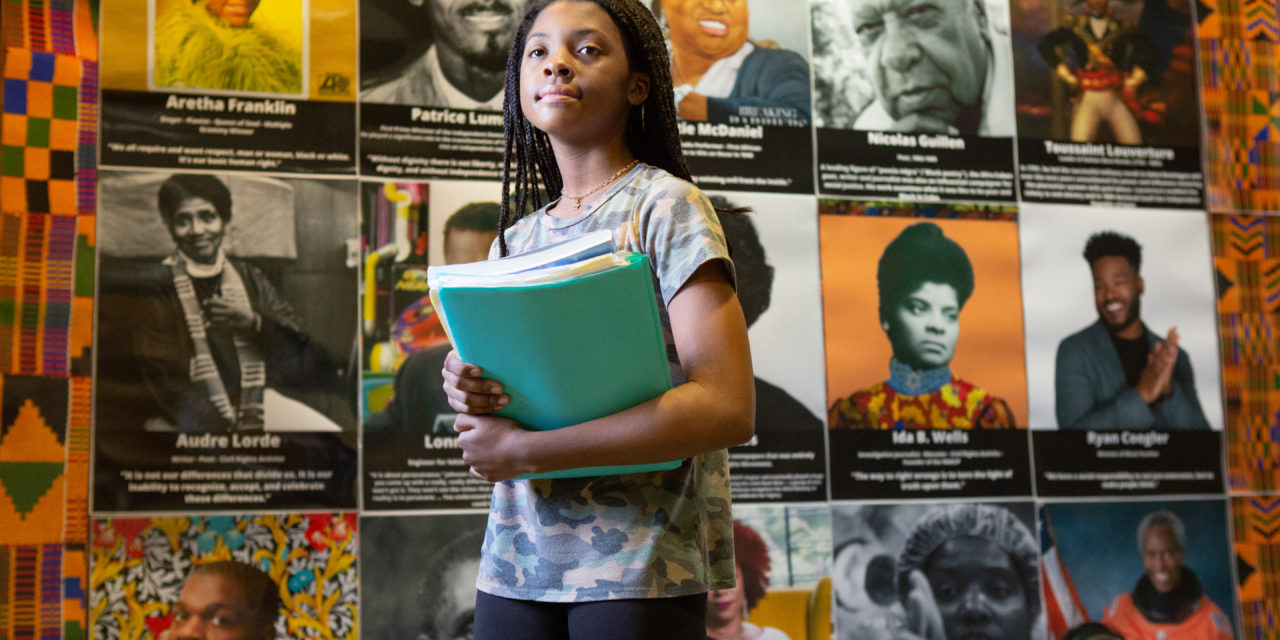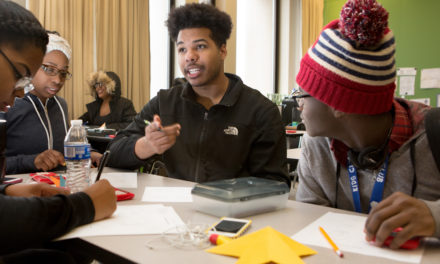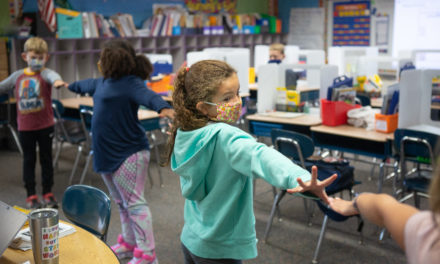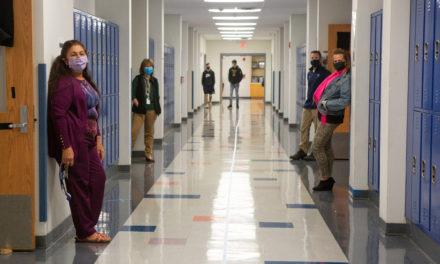Before it got national headlines about its severe water crisis, Jackson, Mississippi, was much renowned for its potholes. “The amount [sic] of potholes in the city is crazy,” exclaims the narrator of “Jackson, Mississippi: The Second Most Dangerous City in America,” a video posted to a popular travel YouTube channel in December 2021. The vlogger continues, “It’s just amazing to me there is a city in America that looks like this. … It’s hard to believe that this is the United States.”
“It is not uncommon to walk through west Jackson and see water flowing out of pipes for weeks,” observed Yoknyam Dabale, a Nigerian immigrant who moved to Jackson, in an op-ed in the Jackson Free Press. “Roads are overrun with potholes and uncleaned gutters.”
“The city says 90 percent of its roads are in poor shape,” television news outlet WLBT reported in 2021. “A Google search pulls up endless complaints, dangerous accidents, and hazardous barricades,” reporter Sharie Nicole wrote. “Local comedians write songs about the potholes; out-of-towners rant about it.”
The steady decay of Jackson’s public infrastructure goes beyond potholes and the water supply.
In 2018, the Mississippi Clarion Ledger reported that Jackson libraries faced a crisis that included “black mold, leaking buildings,” and “chronic flooding issues at two of its main branches.” Jackson libraries have been “suffering from needed repairs,” and some libraries were even facing temporary closure due to lack of money for repairs, according to an August 2022 report in the Northside Sun.
In 2017, the Clarion Ledger, in reporting on the “deteriorating” conditions in the city’s parks and recreation facilities, found a “$1.2 million hole” in the Department of Parks and Recreation budget.
The lack of government investment in Jackson’s public infrastructure, and across the state in general, extends to public schools as well.
Using the state’s school funding formula as a guideline, the Clarion Ledger calculated that since passing the Mississippi Adequate Education Program in 1997, Mississippi lawmakers fully funded public education only twice—“both during election years”—shorting schools of $2.3 billion over the past decade, according to a 2019 article in the Clarion Ledger.
Were Jackson schools funded according to state law, the district would receive $11,447,922 more in state funding for the 2022-2023 school year alone, according to the Parents’ Campaign, a parent advocacy group in the state.
Funding for Mississippi students is even worse if they happen to be Black. “Between 1954 and 1960, the state gave Black students more than $297 million less (in 2017 dollars) than white students,” the Sun Herald reported while referring to government data. “And if that number is extended back to 1890, Black students were shortchanged more than $25 billion.”
Jackson Public Schools (JPS) are 95 percent Black, according to the 2019 Better Together Commission (BTC) Findings Report by the nonprofit One Voice. The Better Together Commission is a public-private partnership that included city and state officials, Jackson citizens, and representatives from the W.K. Kellogg Foundation, a private foundation based in Michigan.
As I reported for the Progressive magazine in 2018, BTC was formed as an alternative to a takeover of the district by the state after an audit by the Mississippi Department of Education found a significant number of state regulatory violations by the district. Fearing state takeover would lead to schools being handed over to charter school management groups—which is what happened in New Orleans, Newark, and other majority-Black school districts—a coalition called Our JPS quickly formed to oppose the takeover and demand an alternative approach to improving the public school system.
One such alternative was to remake schools into community-based centers for providing student- and family-oriented supports and programs designed to address the high levels of poverty, homelessness, and mental and economic trauma in the district.
“We need schools that serve as hubs of the community,” Pam Shaw, a leading spokesperson for Our JPS at the time of writing the article for the Progressive, told me. “Communities should own that space and use it as a launching pad for everything children need.”
Our JPS has since refined that idea into a campaign for the district to adopt what’s become loosely known as community schools. Our JPS defines community schools as “neighborhood schools that partner with families and community organizations to provide well-rounded educational experiences and supports for students’ school success.”
Through the community schools approach, schools partner with local organizations to step in when there is a lack of public infrastructure so that these organizations can help by, for example, providing access to health care and counseling where clinics are lacking, opening pantries in food deserts, or interceding on behalf of families experiencing homelessness or unemployment. Schools using the community schools approach can also become catalysts for addressing chronic infrastructure problems in the surrounding community, such as lack of streetlights, parks, or safe sidewalks.
‘Community Schools Are a Strategy’
While BTC was promoted as a compromise between Jackson Public Schools and the state, it’s difficult to see what Jackson got out of the deal, other than staving off the takeover.
Both in BTC’s own work in Jackson and the work of its associated consulting group, little of the output seems to reflect the Jackson community’s desire for a community schools approach.
For instance, in its first report, which drew from “community conversations,” BTC found, “Among the most pressing concerns regarding the Jackson Public School District were teacher quality, district leadership, and test scores.”
The report mentioned “the theme of a holistic approach surfaced several times,” which is a possible reference to community schools, but nothing resembling the actual policy and practice of community schools is recommended in the report.
Meanwhile, the idea of community schools has caught on with progressive think tanks, teachers’ unions, public education advocates, and philanthropic groups across the nation. California has provided $3 billion in new state funding for transitioning schools to the approach in 2022, and Maryland has pledged to convert at least one-third of the state’s public schools to community schools.
One philanthropic group advocating for the community schools approach in Jackson is the NEA Foundation, a Washington, D.C., based nonprofit founded by educators.
“We entered this work in Jackson at the invitation of Mississippi educators,” NEA Foundation president and CEO Sara Sneed told Our Schools. “There is enormous community pressure for positive change but also expectations that any effort to include community voice in the process will come with a fight.”
The NEA Foundation’s effort also targets two other communities in school districts in the South—Little Rock, Arkansas, and East Baton Rouge Parish, Louisiana. But Sneed expects their work in Jackson to lead the initiative for spreading the community schools approach throughout the South.
“We want to make community schools a signature issue in Mississippi and believe the effort in Jackson is an opportunity to transform the education experiences of children in the South,” Sneed said.
“Legislators in Arkansas have shown support for the community schools approach,” she said. “In Louisiana, unfortunately, there are battles at the local level because of the charter school industry’s interests in taking their model for reform in New Orleans to East Baton Rouge.”
When asked whether the work her organization is engaged in presents any tension with the work done by BTC, Sneed said, “While the BTC may have fostered a much-needed collaboration, it didn’t come up with a strategy. Community schools are a strategy.”
‘What Our Community Wants’
The interest in the community schools approach first caught on in Jackson in 2018 as an alternative to a state takeover, according to Treshika Melvin.
Melvin works as the advocacy, training, and power building director for Springboard to Opportunities, a Jackson-based nonprofit that helps families with housing, employment, child care, and other essential needs. She and her organization are part of the Our JPS coalition helping to implement the community schools approach in the district.
“We’ve moved toward this space because it’s what our community wants,” Melvin told Our Schools. A planning grant from the NEA Foundation provided a catalyst for Our JPS to engage its coalition members in learning about the approach and funding community outreach efforts that included surveys, interviews, and in-person meetings across the city, according to Melvin.
“It quickly became evident to us,” Melvin said, “even without using the term ‘community schools’ in our outreach, that what people were describing they wanted was the community schools approach.”
In contrast to the “pressing concerns” BTC had found through its outreach, according to Melvin, Our JPS found widespread desires for schools to provide access to new programs and services that were otherwise difficult for families to obtain in Jackson. Access to programs for reading improvement, mental health services, and training in conflict resolution and restorative justice were the most popular requests.
Reading programs were by far the most in demand, according to Melvin, with 75 percent of respondents wanting their children to have more access to after-school and summer programs that provide instruction and support in reading. Even among community members without school-aged kids, reading programs were the top priority. Another priority that stood out was for schools to provide more mental health supports to ensure schools are providing safe and supportive environments, physically and emotionally, for all students and parents.
‘It Would Be a Shame’
“The community schools approach makes sense because schools are such important anchors for families and their surrounding communities,” Julian Miller told Our Schools. Miller is a senior supervising attorney at the Southern Poverty Law Center (SPLC), another organization advocating for public schools in Jackson.
In 2016, the SPLC filed a lawsuit against Mississippi on behalf of a group of Jackson Public Schools parents who contended that the state’s method of funding charter schools harms their local schools. In 2018, a county judge denied the suit’s claims. When the SPLC appealed the ruling, the Mississippi Supreme Court upheld the lower court’s decision in 2019.
Despite the high court’s ruling, Miller believes that the community schools approach has the potential to address problems of inequity in Mississippi’s public education system, while charter schools tend to make inequities worse, he said.
Community schools—when implemented with fidelity to the original design and “done holistically, with adequate resources”—are part of the public system, according to Miller, with input from the community, unlike charter schools, which he believes have been imposed on Jackson as a separate and autonomous system.
“It would be a shame if community schools are implemented the same way that charter schools have,” he said, “and never actually increase funding for the [public school] system overall but instead pull away resources.”
In 2017, during the presidential administration of Donald Trump, the U.S. Department of Education under Secretary Betsy DeVos awarded Mississippi with a $15 million grant to subsidize the startup of new charters over the next five years. Most of the new charters are in Jackson, according to Mississippi Today.
Again, in 2022, the U.S. Department of Education awarded Mississippi First, a pro-charter advocacy organization, a $19.3 million, five-year Charter Schools Program grant to grow charter schools in Mississippi.
Despite the flood of outside funding, Mississippi has been slow to ramp up its charter school sector. In 2021, of the five charter schools whose applications were submitted and completed initial screenings, none were ultimately approved. In 2022, out of 10 new charter school applications, only one made it through the full approval process.
Some of the reluctance to open new charters in the state is due to the state being primarily rural, according to Miller. Rural lawmakers often hesitate to open new charters in their communities where resources for schools are already stretched thin, he said. Also, powerful, nationwide charter chains haven’t flocked to the state “because it’s hard for charter schools to make money in rural communities with chronically low performance.”
But perhaps part of the reluctance to quickly expand the charter industry in Mississippi may come from concerns about the schools that are already operational.
Charter schools that were approved in the early years of opening the market, and have since come up for renewal, have drawn scrutiny for their low performance. On Mississippi’s school performance rankings, charter schools, including those in Jackson, perform mostly “on par” with their home districts, according to Mississippi Today.
This runs counter to the charter school industry’s claim that more charters, and other forms of school choice, will improve the overall quality of Mississippi’s troubled education system.
Another concern related to charter schools, according to Mississippi Today, has to do with whether their boards are subject to laws that prohibit conflicts of interest and other ethics violations that the state imposes on taxpayer-funded organizations. While state officials maintain they are, charter operators and advocates say they aren’t.
Despite the sluggish uptake of charters in the state, and concerns with individual schools already operational, nine proposed charters hope to open in Mississippi in 2023.
“Mississippi has the worst school system in the country because of what’s been happening for centuries,” said Miller, especially for Black students. “The problems are systemic, and white students suffer too. My hope is that schools that use the community schools approach eventually improve and serve as models to help other schools improve.”
‘What Sets the Stage for Better Academic Outcomes’
Yet community schools advocates in Jackson concede that evidence linking the approach to improved academic performance is likely to be slow in coming.
Part of the problem in measuring the success of the community schools approach has to do with the relatively short history of the approach’s implementation in schools, especially in Jackson where it is barely underway.
Another problem has to do with how education improvement is generally assessed in the U.S.
For instance, the strategic plan that JPS recently completed, with the guidance of BTC, reads like a typical consultant-driven education reform document, with lots of statistical metrics for measuring the district’s improvement “milestones” and very few qualitative measures that come from parents, community members, and other stakeholders.
“School improvement efforts are often hyperfocused on specific outcomes,” according to Sneed, “but you can’t achieve desirable outcomes without addressing children’s education experiences and the experiences parents and communities have with schools.”
Any effort to evaluate the results of a community schools implementation requires those results to be looked at over time, she contended. Initially, there may be only changes in school climate and culture. Then change shows up in nonacademic areas of the school, such as discipline and attendance. “These changes are what sets the stage for better academic outcomes,” she said.
Similarly, Melvin likens Jackson’s implementation of community schools to the city’s needs for infrastructure improvements—an investment that may not get results right away but will eventually pay off.
“It’s not at all hard to connect the dots between the state of our schools to the city’s overall lack of infrastructure,” she said. This connection became much more apparent during the city’s water crisis.
“Schools are affected by the infrastructure crisis in Jackson but are also part of the infrastructure,” Melvin noted, pointing out how schools were profoundly affected by the lack of water—sometimes resorting to remote learning or merging students with other school campuses—while they also served as distribution points for drinking water, helped students and families get access to food, and enabled parents to go to work during the school day.
“Ideally, infrastructure serves as a shared foundation for economic, environmental, and public health between different neighborhoods and municipalities,” wrote Andre M. Perry, Joseph W. Kane, and Carl Romer in an analysis of Jackson’s water crisis for the Brookings Institution. “[H]owever, infrastructure is often poorly maintained or intentionally overlooked in particular places, leading to a lack of access, affordability, and safety for many communities of color,” the authors contend. “In the case of Jackson, legacy infrastructure goes hand-in-hand with a legacy of racism. The costs of legacy infrastructure parallel long-standing economic and racial disparities in the region.”
Jackson schools have also experienced the very same long-standing economic and racial disparities that have been inflicted on the city’s infrastructure in general. However, while poorly maintained and overlooked public infrastructure would seem to call for new investments into that infrastructure, Mississippi lawmakers have instead tended to resort to privatizing public systems.
Governor Tate Reeves has not only said that privatizing Jackson’s water system is “on the table,” according to the Mississippi Free Press, but he’s also called charter schools “a positive pathway for students.”
Advocates for the community schools approach in Jackson see things otherwise.
“We see the community schools approach as a way to build up the city’s infrastructure,” Melvin said, “to be something that truly serves community needs and the success of our students and families.”
(Photo by Allison Shelley/The Verbatim Agency for EDUimages, CC BY-NC 4.0.)






Recent Comments